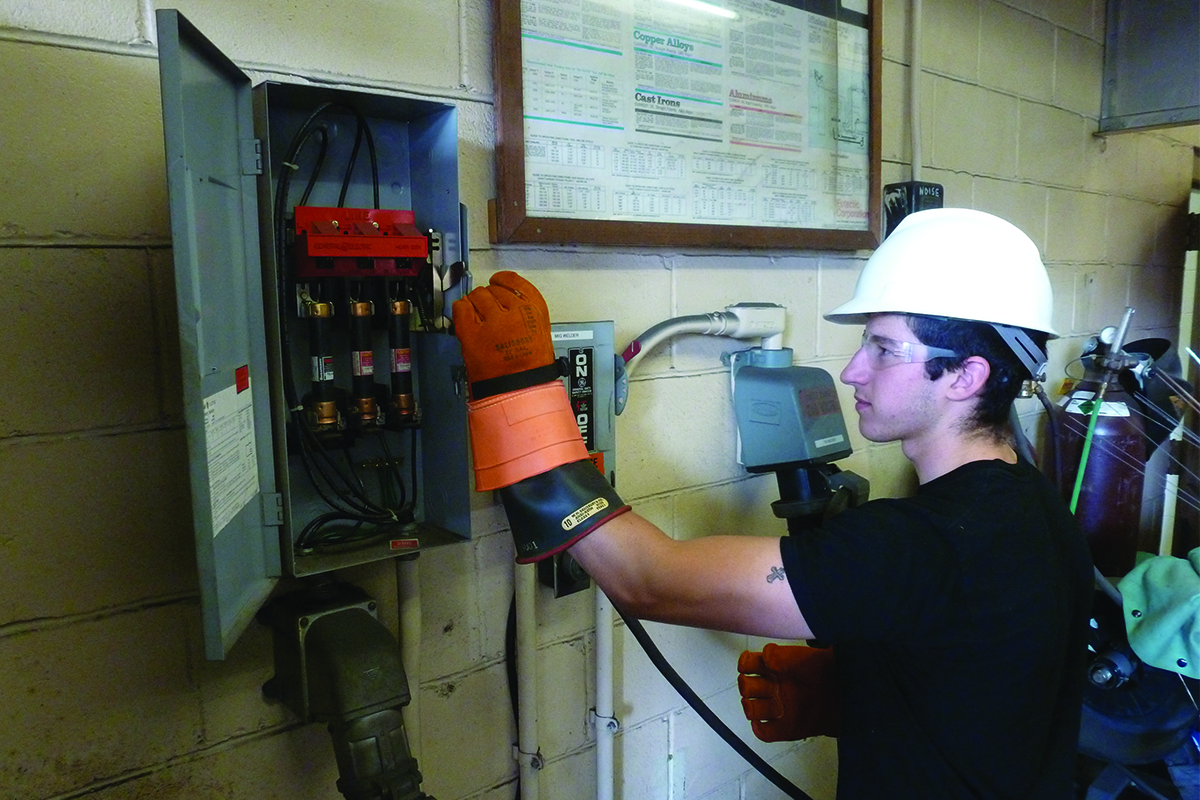Electrical Technology
This program provides electrical apprenticeship training with an emphasis on residential, agricultural, commercial, and industrial wiring. The Electrical Technology program is recognized by the U.S. Department of Labor, Bureau of Apprenticeship and Training and the State of Michigan Bureau of Construction Codes.
Students study the latest electrical fundamentals, codes, various installations, motor controls and solid-state electronic applications. Throughout the program, students also study energy efficiency and alternate power systems.
The Electrical Technology program combines a sound theoretical foundation with an applied hands-on internship to prepare students for a wide range of careers.
Request information about the Electrical Technology program

Areas of study include:
- Electricity fundamentals.
- Electrical wiring.
- Electrical applications and systems planning.
- Communications.
- Energy efficiency and conservation.
Students can also get involved in a variety of clubs and organizations.
Career Opportunities
Following graduation, students earn a certificate preparing them for the job market. If interested, students can also transfer into Michigan State University to earn a bachelor’s degree in biosystems engineering or another related degree.
Graduates find electrical careers in a variety of facilities and industries based on their interests.
Some career paths include:
- Manufacturing facilities manager.
- Alternate energy installer.
- Electrical inspector.
- State government electrician.
- Electrical contractor.
- Equipment service personnel.
Academics
The Electrical Technology certificate program is based in East Lansing on the campus of Michigan State University.
Program requirements:
- 48 credits
- 3-4 semesters of classroom instruction
- 1 semester off-campus internship (primarily during the summer from May to August)
Learn more about the MSU requirements and courses in the Electrical Technology certificate program.
Class sizes are small and students receive individualized instruction in addition to access to Big Ten facilities and experiences.
Some learning facilities include:
- Farrall Agricultural Engineering Hall and Lab.
Internships
IAT coordinators help students find and secure organizations to mentor them as part of their required certificate program internship. Not only does this provide immediate on-the-job experience, but internships also help with networking and industry connections.
Some internship locations include:
- Electrical contracting companies.
- Manufacturing facilities.
- Energy auditing businesses.
- Agribusiness equipment dealers.
- Healthcare and educational facilities.
- State and local government entities.



 Print
Print Email
Email